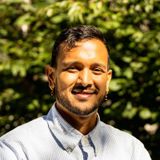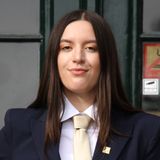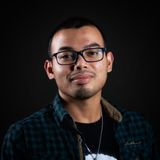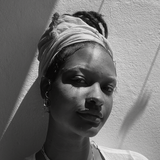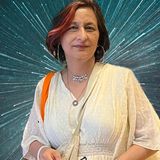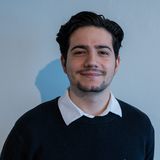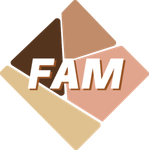In this special episode of ‘Designing Cities for All’, we delve deeper into the living experiences of first-generation non-Western Dutch residents affected by three dimensions: public spaces, healthcare and mental well-being. Our surrounding environment such as public spaces and their design greatly affect our sense of belonging. While the Dutch healthcare system includes intersectionality to a good extent, when it comes to the concept of cultural intersectionality, there is so much room for improvement. According to research, as an example, POC suffer from numerous institutional barriers when accessing healthcare (Williams & Rucker, 2000). In this discussion, panel participants will shed some light on their lived experiences to help us understand their perspectives on growing up here in The Netherlands and give us new ideas on how to design for a more inclusive city. Join us in this vulnerable yet powerful discussion, followed by a spoken word performance for everyone struggling with their sense of belonging in The Netherlands.
About the speakers
Danny Soekarnsingh is 31 years old and uses the pronouns he, him, his. Academically Danny holds a bachelor’s degree in Artificial Intelligence and an MBA with a specialization in digital business and innovation. In his time as a student he was one of the co-founders of the student organization Family of Academic Minds (FAM) , which is a student platform for first generation university students with a migration background. In his working career he filled the roles of diversity officer decolonization at the Vrije University and management consultant at Echo – Expertise center for diversity policy. As of now he is an advisor on diversity and inclusion at the municipality of Amsterdam. In his personal life Danny is authoring two books. The first is called Racism – a full circle which is a book that highlights colonial whiteness and the effects of whiteness from a decolonial perspective. The second is a photobook called: “What it feels like – Suriname”. A visual and poetic interpretation of the beauty and ails of still colonial Suriname.
Francys Gaviria Aldas is a Psychology student at VU Amsterdam and has roots from Colombia and Ecuador. She has been an active member of FAM since 2019 and she is currently the 3rd Chair of the association. FAM is a student association founded by the first-generation students, who did not really feel like they fit in the association culture of Dutch students. FAM organises events that entails wide variety of events from educational programmes which create sense of awareness for sensitive topics to fun events that acts as a networking opportunity for like-minded people. As the chair, she oversees the committees of the association, establishes partners, and moderates the board of FAM.
Jonathan Tjien Fooh is a writer, poet, cultural Anthropologist, researcher & coaching lecturer at VU Amsterdam. He studied Psychology (BSc.) at Anton de Kom University of Suriname and Cultural Anthropology (MSc.) at Utrecht University. All of his work is rooted in untangling systems of exclusion and oppression using an intersectional and decolonial lens; ultimately breathing life to untold and erased (hi)stories. His previous research explored themes related to the meaning of rukun and wellbeing in the lives of Javanese women in Suriname, arts-based research, queerness, identity, migration, and the politics of belonging. In 2015 he published the children’s book ‘De Magische Tuin van Mbah Semie’ (The Magical Garden of Grandma Semie), inspired by Javanese-Suriname culture and mythology.
Basia Diagne is a visual storyteller and researcher with a global focus on traditional and indigenous medicine, sexual and reproductive health (SRH), and community-based approaches to healthcare and wellbeing. She holds a B.A. in African History, International Law, and Gender Studies from the American University of Paris and is currently completing an MSc in Global Health Research at Vrije Universiteit. Her practice and discourse blend rigorous research with creative storytelling, visual communication, and art-based methods. The culmination of these callings has birthed Sago Journal a digital repository, journal, and counter-archive chronicling heritages of healing through storytelling and audio-visual culture.
Kavita Malviya, is a Hindi teacher ,story teller and poet whose career has spanned 3 decades all the while creating art with her language: a strong hold of her vernacular breathes life into her words through her spoken art and beat poetry. Her poems have been published in magazines like Kadambini and Samaj Kalyan since the age of 18 and her first book of poetry ‘Saleeben abhi baaki hain’ was published in 2014. She’s been an innovative Hindi teacher, proactive performer, mentor and advocate for Children Theatre and its importance in early development for the past 14years. She’s currently advocating her passion as a founding member of “kahani ki dukaan foundation” that traveling art collective. Along with anchoring various programs, she’s performed at the All India Radio (A.I.R.) set for children’s theater and had conducted workshops nationally and internationally. She spent three and half years as third secretary, Hindi chair posted by Indian Embassy at Suriname, South America. Her life’s work has been an exploration of her language through spoken word and educational cross collaborations intertwined in performing arts and culture. .
About Designing Cities for All: RE generation
Over the past two years of Designing Cities for All (DCFA) we’ve learned about exclusion by design and the (re)-design of inclusive cities. Along the journey, a certain question kept popping up: what exactly does ‘for all’ entail? After focusing mostly on the ‘who’ over the past two years, DCFA is rebooting as Designing Cities for All: RE-generation . This time around, the series is also incorporating the ‘what’ by looking through the fresh lens of regenerative design . This emerging field might very well be a promising answer to the challenges of our time, as it focuses on the (re)-design of products, services, and ecological recovery that keeps the systems healthy.


